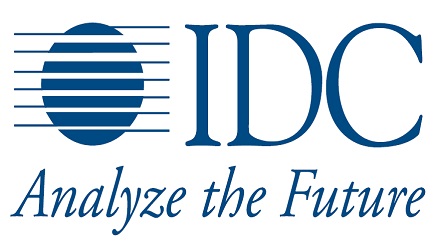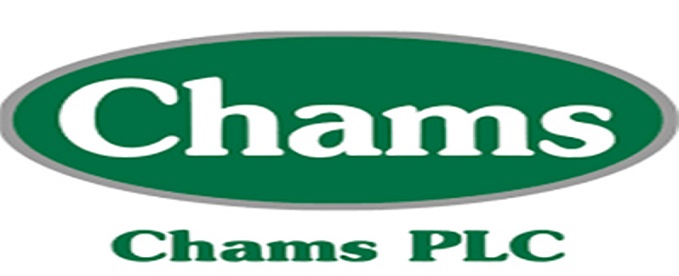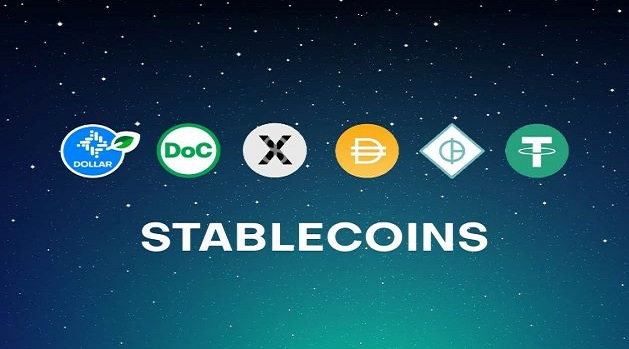E-Business
PC Market Finishes 2015 As Expected, Lenovo Tops- IDC Tracker

Worldwide PC shipments totaled 71.9 million units in the fourth quarter of 2015 (4Q15), a year-on-year decline of -10.6%, according to the International Data Corporation (IDC ) Worldwide Quarterly PC Tracker .
Although total shipments were in line with already conservative expectations, the news nonetheless ended 2015 as the first year below 300 million units since 2008.
However, Lenovo maintained its top rank for the quarter and all of 2015, exceeding 20% market share for the year.
The holiday quarter, according to IDC, achieved a modest uptick compared to the third quarter, but the year-on-year decline in 2015 shipments was nevertheless the largest in history, surpassing the decline of -9.8% in 2013.
The PC market continued to face persistent challenges from longer-PC lifecycles and competition from mobile phones and tablets, despite the slowing growth in those markets.
However, economic issues like falling commodity prices and weak international currencies, as well as social disruptions in EMEA and Asia/Pacific that disrupted foreign markets were a larger factor for 2015.
Changes in the OS market also had a significant impact with the end of support for Windows XP and promotions of low-cost PCs driving a surge in replacements in 2014 that combined with the launch of Windows 10 and a free upgrade program to delay new system purchases in 2015.
Lastly, while some very attractive new PCs have been launched, the market is taking some time to respond to new OS and hardware configurations – deciding when to upgrade and evaluating slim, convertible, detachable, and touch variations vs. more traditional PCs.
Nevertheless, many of these products have received positive reviews and there’s potential for a faster commercial transition to Windows 10 in 2016 than we saw for prior versions of Windows.”
“The PC market remains competitive and the economic environment weakened further with the recent drop in the Chinese stock market,” said Loren Loverde , IDC Vice President, Worldwide PC Tracker. “However, PC replacements should pick up again in 2016, particularly later in the year. Commercial adoption of Windows 10 is expected to accelerate, and consumer buying should also stabilize by the second half of the year. Most PC users have delayed an upgrade, but can only maintain this for so long before facing security and performance issues. We continue to believe that a majority of these users will purchase another PC, motivated by new products and attractive pricing.”
“Consumer sentiment toward PCs remains a challenge, though clearly there are pockets of growth,” said Jay Chou , Research Manager, IDC Worldwide PC Tracker. “Even as mainstream desktop and notebooks see their lifetimes stretched ever longer, Apple’s emergence as a top 5 global PC vendor in 2015 shows that there can be strong demand for innovative, even premium-priced systems that put user experience first.”
Detachable tablets, which are counted separately from PCs, are growing quickly but from a small base.
Adding those units to PC shipments would boost growth by roughly 6 percentage points in the fourth quarter and 3 percentage points for all of 2015, bringing year-on-year growth for 4Q15 to a decline of about -5% and -7.5% for all of 2015.
The impact for 2016 will be larger as detachable tablet volume grows, boosting earlier forecasts of PC growth in 2016 from -3.1% to growth of 1 to 2%.
“The U.S. PC market fell -4.3% year over year to 17.4 million units. Although the U.S. dollar has been strengthening in lieu of currency crises in other regions, consumers here are not immune to economic concerns that have persisted globally,” said Linn Huang , Research Director, Devices & Displays. “The free upgrade path to Windows 10 allowed some consumers who might otherwise have shopped for new PCs during the holiday season to obtain a ‘new’ PC experience. Additionally, the launch of the iPad Pro may have syphoned off some consumer interest in traditional PCs. Consequently, the holiday season produced soft results for the U.S. PC market.”
Regional Highlights
United States – HP retained its lead in the U.S. PC market with a 28.1% share, while Dell held the second position with a 23.9% share.
Apple, which continues to buck the trend of an eroding consumer PC market, leveraged the consumer-heavy holiday season to retake third place with a 12.7% share.
Lenovo continued its aggressive growth trajectory. Its 21.3% year-over-year growth (to 2.2 million units shipped) was by far the strongest growth rate of all vendors.
However, it was not enough to overcome a strong Apple performance as Lenovo fell to fourth.
The quarter also saw a new entrant into the top five: ASUS rode 11.0% year-over-year growth to a 7.1% share to overtake Toshiba and Acer.
Europe, Middle East, and Africa (EMEA) – As forecast, EMEA witnessed another quarter of double-digit year-over-year decline in PC shipments, as vendors remained engaged in clearing out the older inventories of Windows 8.
The launch of new products with Windows 10 supported holiday season business, but did not reverse the negative trend.
The late availability of PCs based on Skylake architecture delayed some purchases while IT budgets suffered from economic instability and currency volatility.
Asia/Pacific (excluding Japan)(APeJ) – The APeJ PC market posted a year-on-year decline with shipments affected by weak consumer demand and high inventory levels in the channels.
Currency fluctuations contributed to an increase in pricing and effectively softer sales, while end users continued to focus their spending on other consumer devices.
The market was particularly soft in India, where floods and weak demand during festival season contributed to low sales of PCs in the consumer space.
Japan – The market performed better than forecast and posted solid year-over-year growth, however a weaker Yen, high inventory, and lack of Windows 10 marketing continued to constrain PC sales.
Vendor Highlights
Lenovo maintained its top rank for the quarter and all of 2015, exceeding 20% market share for the year.
Shipments reached nearly 15.4 million units in the fourth quarter, mostly due to strong volume in North America.
HP was the number 2 vendor, slightly outperforming the market although its volume declined across regions.
Dell remained the number 3 vendor at nearly 10.2 million units with above-market performance in the U.S.
ASUS outperformed the market and moved into the number 4 position.
With nearly 6 million units and 7.9% market share, this was the best quarter for ASUS since 2012. Strong sales in Asia/Pacific boosted the growth.
Apple effectively tied* ASUS for the number 4 position in the fourth quarter, but was clearly ahead on an annual basis.
The company continued its strong run and outperformed the market, increasing its share globally to 7.9% for the quarter and 7.5% for the year.
E-Business
Chams Carves Out Subsidiary to Support Africa’s Digital Transformation

Chams Holding Company Plc, (Chams Holdco), digital payments and verification firm, has created a new subsidiary which is expected to strengthen the push for Africa’s digital transformation.

The creation of the new subsidiary, ChamsCorp Plc, which took effect from February 1, was made known in a filing to the Nigerian Exchange Limited , according to an announcement.
Chams said that the new subsidiary, which is its 5th, will give a new dimension to its more than 40 years of work in building the digital ecosystem not only in Nigeria, but across the continent and the rest of the world.
The newly created company will focus on three major aspects, namely the manufacturing of digital devices and development of digital infrastructure and services; data center design, construction and operations, and the development and implementation of AI infrastructure and intelligent systems.
It will also contribute to its parent company’s digital ID, digital verification, and trust services offering.
“For nearly four decades, we’ve enabled trust in transactions and identity. Now, we go furthe”
Chams is expanding into AI, data centre infrastructure, and intelligent systems, building the backbone for Africa’s digital transformation,” the company wrote in a LinkedIn post.
“We are not just participating in the future. We are engineering it,” the message added.
According to the Chams announcement, a decision of its Board of Directors appointed members of the pioneer board of ChamsCorp Plc, with renowned banker Mohammed Bashir Yunusa designated as Chairman.
He is described as a well-known finance expert who specializes in deal structuring, corporate and retail finance, business strategy, digital transformation, and Islamic Finance and Banking.
With more than 10 years of experience in the financial services industry, Yunusa currently serves as head of Consumer and Digital Banking for Non-Interest Banking Retail at Sterling Bank Nigeria, and will also serve as a non-executive director on the board.
“Chamscorp is designed to take our most ambitious ideas to market at speed and scale. As Africa’s digital economy evolves, we are focused on delivering transformative solutions that empower governments, businesses, and citizens alike,” Femi Oyenuga, CEO, Chams, commented on the development.
Chams has over the years played a major role in contributing to Nigeria’s digital ID ecosystem development to facilitate access to financial services.
In 2023, the company Group Chairman publicly stated that in providing such digital services to the Nigerian government, it had incurred debts estimated at $100 million and were planning to change their business model as a result.
E-Business
Nigeria, South Africa Drive Stablecoin Spending in Africa

Africa has emerged as the global frontrunner in stablecoin adoption, with Nigeria and South Africa leading the charge with the fastest adoption rate, as transactions surge across the continent.

This is according to the Stablecoin Utility Report, compiled by YouGov on behalf of fintech firm BVNK.
The study, conducted in partnership with Coinbase and Artemis, surveyed over 4 600 early adopters and crypto-natives in 15 countries across five continents.
It shows people are turning to stablecoins to move money more quickly, securely and affordably – and how this shift in behaviour is becoming a worldwide trend beyond its roots in the Global South.
Stablecoin adoption is accelerating particularly rapidly across Africa in 2026, driven by currency volatility, high inflation and the need for cheaper, faster cross-border payments, it finds.
The Stablecoin Utility Report shows that 79% of African respondents hold stablecoins − the highest ownership rate globally − while 76% say they intend to acquire them in the near future.
Nigeria and SA lead the continent in everyday stablecoin spending, highlighting a shift from holding digital dollars as a store of value, to actively using them for commerce.
The appetite to be paid in stablecoins is even stronger: 95% expressed interest in receiving income via dollar-pegged digital assets, whether for salaries, freelance work or cross-border services, according to the study.
Anthony Yim, co-founder and CEO of crypto research firm Artemis, explains: “We’re experiencing a significant behavioural shift in the way people are using stablecoins.
“Crypto natives and early adopters are fully on board with stablecoins, using them to pay and be paid. This is driving mainstream, global adoption – stablecoin supply has increased 500% over the past five years. Alongside the passage of multiple legislation initiatives in numerous countries, it’s clear we’re experiencing a tipping point.”
From hedge to household spending
Unlike in some developed markets where stablecoins are viewed primarily as a payments upgrade, African users are deploying them as practical financial tools. Key use cases include hedging against inflation, facilitating remittances and funding day-to-day purchases.
The report finds that 92% of African respondents say the condition of their national economy directly affects their stablecoin usage − a reflection of currency volatility, capital controls and high remittance costs across several markets.
Africa also recorded the highest likelihood globally (89%) of users adopting stablecoin-linked debit cards, signalling demand for tighter integration between digital assets and traditional payments.
Infrastructure, not ideology
Taken together, the findings reinforce a broader thesis: stablecoins are evolving beyond a payment method into payments infrastructure, states the report.
For individuals, this means receiving income faster and at lower cost. For businesses, it enables borderless treasury operations and supplier payments. For financial platforms, it opens opportunities to embed stablecoin wallets, debit cards and cross-border settlement into core offerings.
This demand for institutional-grade integration is evident globally, with 77% of survey respondents saying they would open a stablecoin wallet if offered by their primary bank or fintech provider.
As adoption deepens in Africa and regulatory frameworks mature in developed markets, the data suggests stablecoins are no longer a niche crypto product − but a structural layer in the future of global money movement, notes BVNK.
E-Business
Kaspersky Reports 15% Growth in Malicious email Attacks in 2025

According to Kaspersky telemetry, almost every second email – 44.99% of global traffic – was spam in 2025. Spam consists not only of unsolicited emails, but can also include various email threats such as scam, phishing and malware.

In 2025, individuals and corporate users encountered over 144 million malicious and potentially unwanted email attachments, representing a 15% increase compared to the previous year figures.
In 2025, APAC had the largest share of email antivirus detections: it reached 30%, followed by Europe with 21%. Next came Latin America (16%) and the Middle East (15%), Russia and CIS (12%) and Africa (6%). As for individual countries, China had the highest rate of malicious and potentially unwanted email attachments, with the share of email antivirus detections of 14%. Russia ranked second (11%), followed by Mexico (8%), Spain (8%) and Turkey (5%).
Email antivirus detections peaked moderately in June, July and November.
Key trends in email spam and phishing
Kaspersky’s annual analysis has also identified several persistent trends in the email spam and phishing threat landscape that are expected to continue into 2026:
- Combination of various communication channels. Attackers lure email users into switching to messengers or calling fraudulent phone numbers. For instance, scam investment mailings may redirect victims to fake websites, where they are asked to provide their contact information, and then cybercriminals will follow up with a phone call.
- Usage of diverse evasion techniques in phishing and malicious emails. Threat actors frequently try to disguise phishing URLs, for example, with the help of link protection services and QR codes. These QR codes are often embedded directly in email bodies or within PDF attachments, which not only conceals phishing links but also encourages users to scan them on mobile devices, potentially exploiting weaker security measures than corporate PCs.
- Mailings exploiting diverse legitimate platforms. For example, Kaspersky experts discovered a fraudulent tactic that abuses OpenAI’s organisation creation and team invitation features to send spam emails from legitimate OpenAI addresses, potentially tricking users into clicking scam links or dialing fraudulent phone numbers. Additionally, a calendar-based phishing scheme, which originated in the late 2010s, resurfaced last year with a focus on corporate users.
- Refining tactics in business email compromise (BEC) attacks. In 2025 attackers attempted to become even more persuasive by incorporating fake forwarded emails into their correspondence. These emails lacked thread-index headers or other headers, making it difficult to verify their legitimacy within an email conversation.
“Email phishing shouldn’t be underestimated. Our report reveals that one in ten business attacks starts with phishing, with a significant proportion being Advanced Persistent Threats (APTs). In 2025, we saw an increase in the sophistication of targeted email attacks. Even the smallest details are meticulously crafted in these malicious campaigns, including the composition of sender addresses and the tailoring of content to real corporate events and processes.
“The commodification of generative AI has significantly amplified this threat, enabling attackers to craft convincing, personalised phishing messages at scale with minimal effort, automatically adapting tone, language and context to specific targets,” comments Roman Dedenok, anti-spam expert at Kaspersky.

 News2 days ago
News2 days agoAfrican Leaders Highlight Africa’s AI Ambitions

 General News3 days ago
General News3 days agoUBA Unveils Diaspora Platform to Connect Global Africans with Investment, Wealth Opportunities

 General News2 days ago
General News2 days agoNDPC Orders Probe into Temu over Alleged Data Privacy Breaches

 Telecom2 days ago
Telecom2 days agoMTN, BUA, Dangote & Other Industry Giants Triumph at NGX Made of Africa Awards

 Telecom2 days ago
Telecom2 days agoX Suffers Global Outage, Millions Barred from Access

 News2 days ago
News2 days agoLG Nigeria Begins Nationwide Search for Oldest Working TV, Rewards Loyalty with AI QNED Upgrade

 Telecom2 days ago
Telecom2 days agoMTN CIO Urges Africa to Lead Fourth Digital Revolution

 General News3 days ago
General News3 days agoLeo Stan Ekeh Foundation, Zinox Group To Invest 10B on 1000 University Tech Scholarships for Indigent Nigeria Wiz-kids














